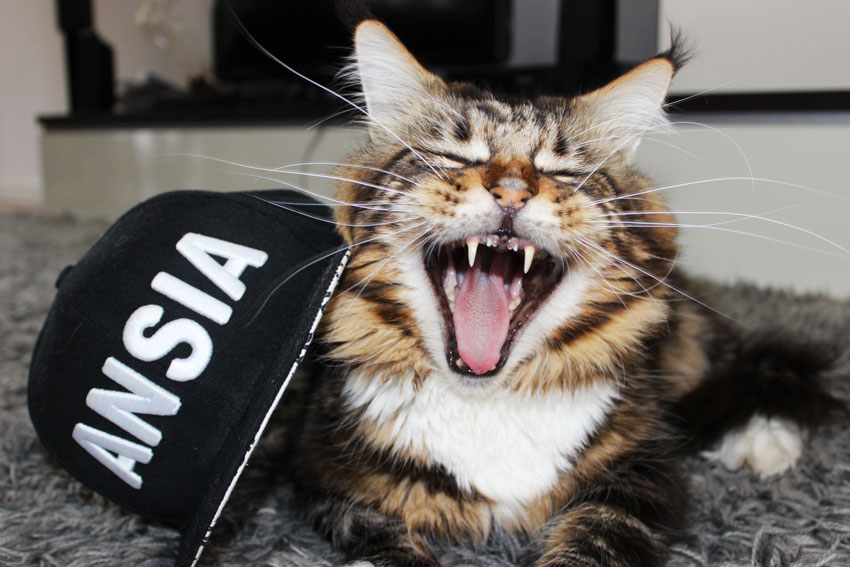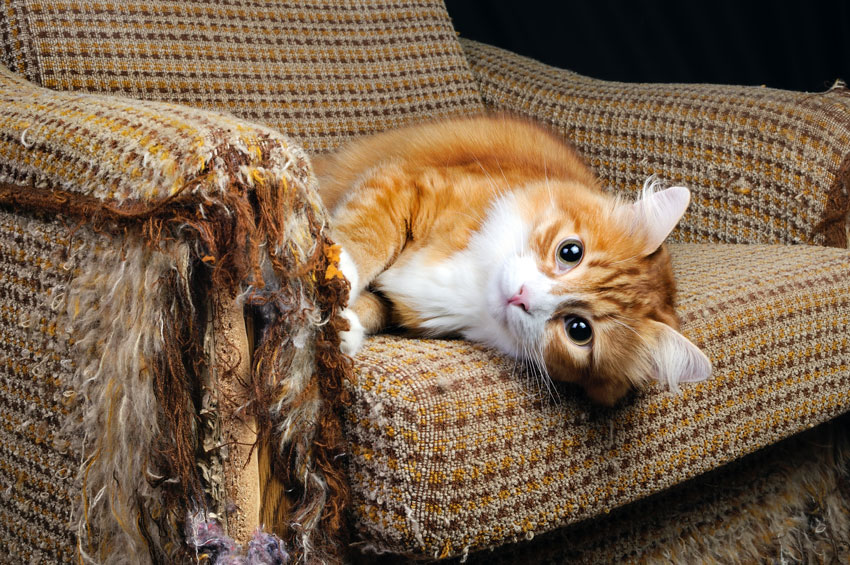It’s hard to believe seeing as they live like kings – they sleep most of the day, live in warm cosy homes and have food when they want it. Yup, being a cat is a great thing! That said, sometimes even our cats suffer from conditions tied to stress. Let’s take a good look at some of the causes and the problems they lead to.
Yes, the cats can also suffer from anxiety, just like us, but for quite different reasons. Trying to understand the sources of the anxiety, however, is not an easy task and to do so you have to try to get into their feline heads and understand their specific needs and habits. Each cat comes with its own special personality, which experiences and training then modify. There is a period called “socialization”, a particular phase of neurological development during which each cat learns to recognize features of the surrounding environment that will become normal for him. That period lasts until he’s about three months old. It is, therefore, likely that a cat will react with anxiety to any new experiences after this period.
Outdoor cats spend about 60% of their time sleeping or resting; when they are awake they groom and hunt, they play and then, with the remaining 2% of their time, they eat. When a cat is adopted it doesn’t always find the new space to its liking, especially if he can’t go in and out as he pleases or there is no outdoor space for him at all (i.e. apartments) and remember, domestic environments can sometimes be anything but inspiring. It is the owner, in fact, who needs to set the pace: when to eat, when to play together. The owner decides where the litter box will be placed, and where the cat will sleep. All of this affects, for better or for worse, the habits of the cat, who doesn’t always demonstrate his approval of our choices, even though they were made with the best intentions.
We must also not forget that cats are not always social creatures. Some prefer not to share their space, let alone their bowls, with other cats. The cats who are most likely to be exposed to problems tied to stress are those that live indoors with other cats. The signs that a cat is ill at ease are not always visible and can occur intermittently. Examples are excessive meowing, scratching surfaces with claws, urinating or defecating in inappropriate places or even aggressive behaviour, tantrums, if you will.
Setting aside the fact that living with a stressed-out cat is no fun – constant meowing, shredded furniture, stains and smells – it is nonetheless important to remember that this condition is also very upsetting for the cat. Just like in humans, stress can cause more than just odd or excessive behaviour in cats too, it can have physical manifestations like feline idiopathic cystitis, hepatic lipidosis, dermatitis and alopecia from licking. So if you think your cat may be suffering from stress, read on… as in the second part of this article you’ll find out how to relieve the stress your kitty is suffering from.
We would like to thank the veterinarian Chiara Pellizzari for helping.


